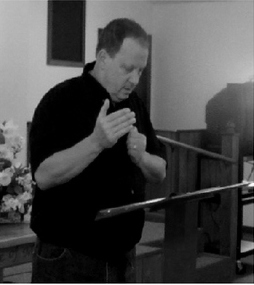TANC 2017: The Church in General and Protestantism/Catholicism in Particular Stand Condemned Already
 At this year’s conference my talks will focus on the meaning of key words. One of the key problems with church is its singular definition of many key words. Primarily in the case of Protestantism, these singular definitions cause massive confusion and debate rather than ministry.
At this year’s conference my talks will focus on the meaning of key words. One of the key problems with church is its singular definition of many key words. Primarily in the case of Protestantism, these singular definitions cause massive confusion and debate rather than ministry.
This warm-up to the conference is about the word, “judgment.” Due to the church’s Dualism philosophy, definitions of words will be greatly restricted; singular definitions of words is a hallmark of Dualism.
So the debate rages in the church; what’s the balance between judging someone and practicing discernment? Per the usual, the argument will never end because there is no true definition of judgment available to underpin the discussion. The following is only one of many ways the confusion manifests itself: Yes, if you realize Deacon Dan is a rapist, you are discerning, but if you make an issue of it, you’re judging. And so it goes.
What is the biblical definition of “judgment”? You first have to understand the biblical definition of “condemnation.” To condemn someone strips them of hope in obtaining eternal life. That’s what condemnation is. According to the Bible, only God has the authority to condemn based on what people believe.
When Christ said something like, “do not judge lest you be judged,” He was referring to condemnation; He was referring to someone usurping God’s authority in the eternal condemnation of others. Throughout the scriptures, this kind of condemnation of others is defined as explicitly satanic. In contrast, when we judge someone in regard to discernment and the application of wise actions accordingly, this is judgment according to discernment (and even love), and not judgment in regard to condemnation.
This is why the church, whether Protestant or Catholic and the stripes thereof stand judged (condemned) already; because they judge (they condemn). In other words, they claim God’s authority to condemn others eternally, and they are therefore judged accordingly. Only God Himself has that authority.
With Catholicism, this is common knowledge while Protestants will usually protest the assertion this way: “Our church doesn’t believe we have that authority!” Hmmmmm, really? Full stop: in case you are unaware, a Baptist is a Protestant. That’s the first point. Second point: pray tell, when did it ever happen that a Buddhist was allowed to join a Baptist church because said Buddhist “doesn’t believe everything Buddha believed”?
Third point: the authority supposedly granted to the Protestant church to proclaim someone saved or unsaved is documented orthodoxy with historical precedent etched in stone. And according to the clear dictates of Scripture, patently satanic.
When we call someone out and hold them accountable, we are not judging them in a condemning way; we are probably loving them, and love can be hard at times. Understanding the true definition of judgment in light of discernment AND condemnation makes the issue crystal clear, and…
…the ability to do more ministry with more afforded time and wisdom according to truth.
Because only truth sanctifies (John 17:17),
Paul M. Dohse
2017.ttanc.com


Thanks for this. The Dan the Deacon rapist example rings true. Protestants have all authority in heaven and on earth; wait, isn’t that Jesus?
LikeLike
“Full stop: in case you are unaware, a Baptist is a Protestant. That’s the first point.”
Umm, Paul, the pastor at the independent Baptist Church a stone’s throw from where I live adamantly denies that he or his church is “Protestant”. He is Baptist, not Protestant, and anyone who dares to call him (or his church) “Protestant” will be quickly and firmly corrected. He will further claim he can trace his church’s lineage back to the apostles. But when I ask him to name three people from each century in history as part of the supposed lineage …. well then things get a little fuzzy. Gee, I wonder what the date is on that “Fundamentals” book of his. When the Lord returns, will he find faith on earth? I think not. I think He will find a remnant.
LikeLike
Thanks Susan. The Baptists parted ways with the Lutherans and Presbys on the infant baptism issue but did not budge one inch on the Protestant “justification by faith” false gospel. EVERY branch of the Protestant tree holds this foundation in common intellectually and functionally, or at least functionally.
LikeLike
Yeah, that’s kinda of what I thought. He mentioned something about the Waldensians (not sure if I spelled it correctly) who were not part of the Reformation. My response is, “Whatever.” It is not just the faith problem. It is a Christ problem. It seems the two other persons of the Trinity aren’t necessary as long as there is Christ.
As I see it, Protestantism is literally devolving into agnosticism. Do any of them know what they believe? Do any of them know what the Bible teaches? It seems as if contradictory views among the Protestant sects are all equally valid. I shake my head in disbelief and amazement. I call Protestantism the Tower of Babel.
LikeLike